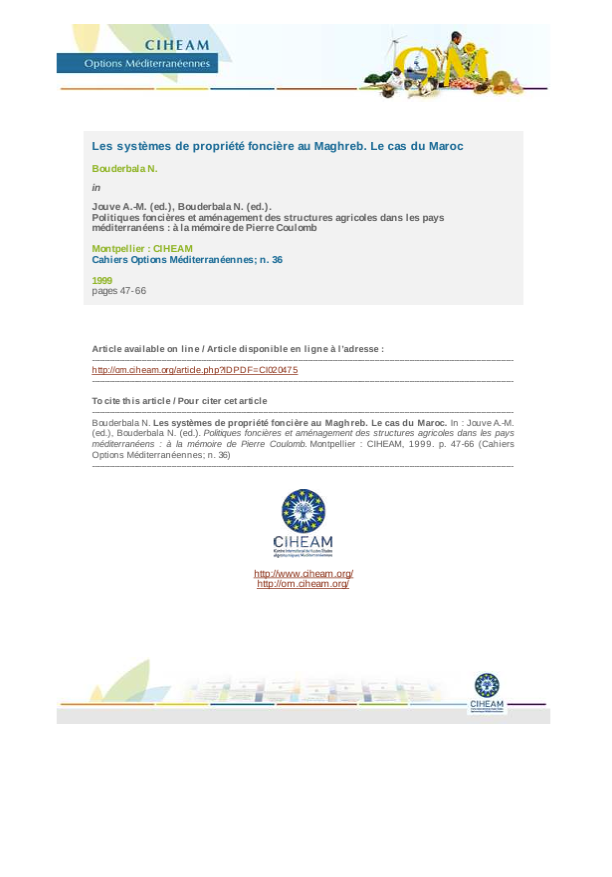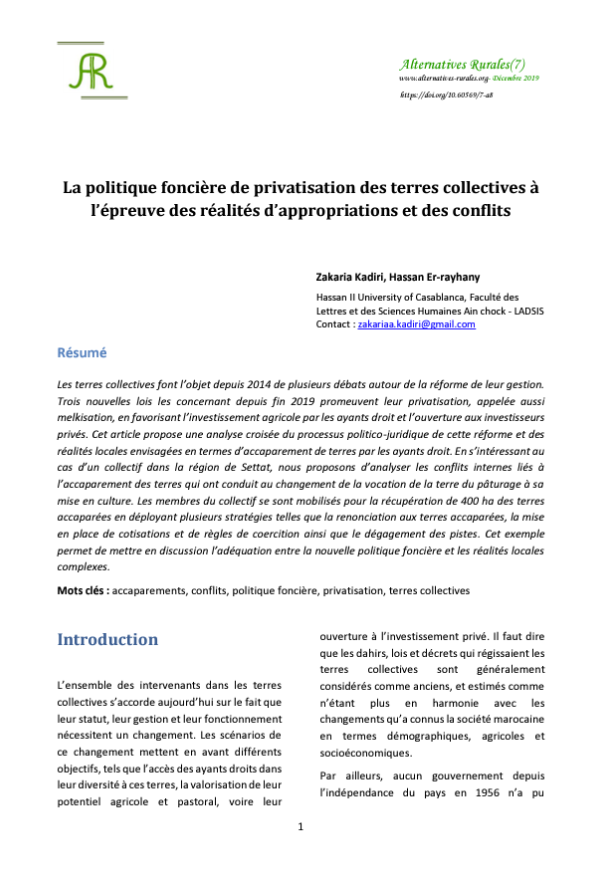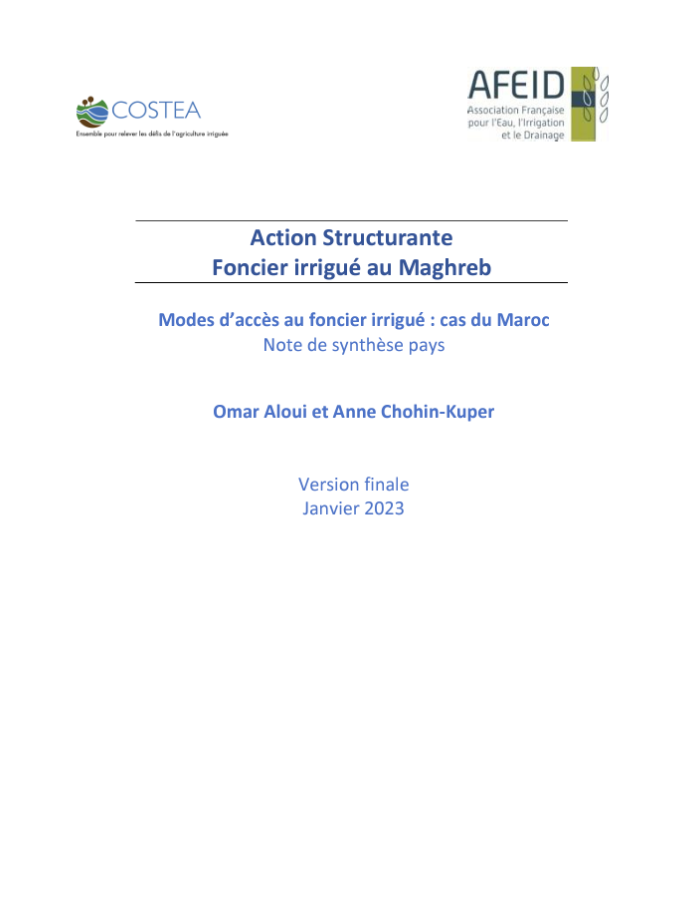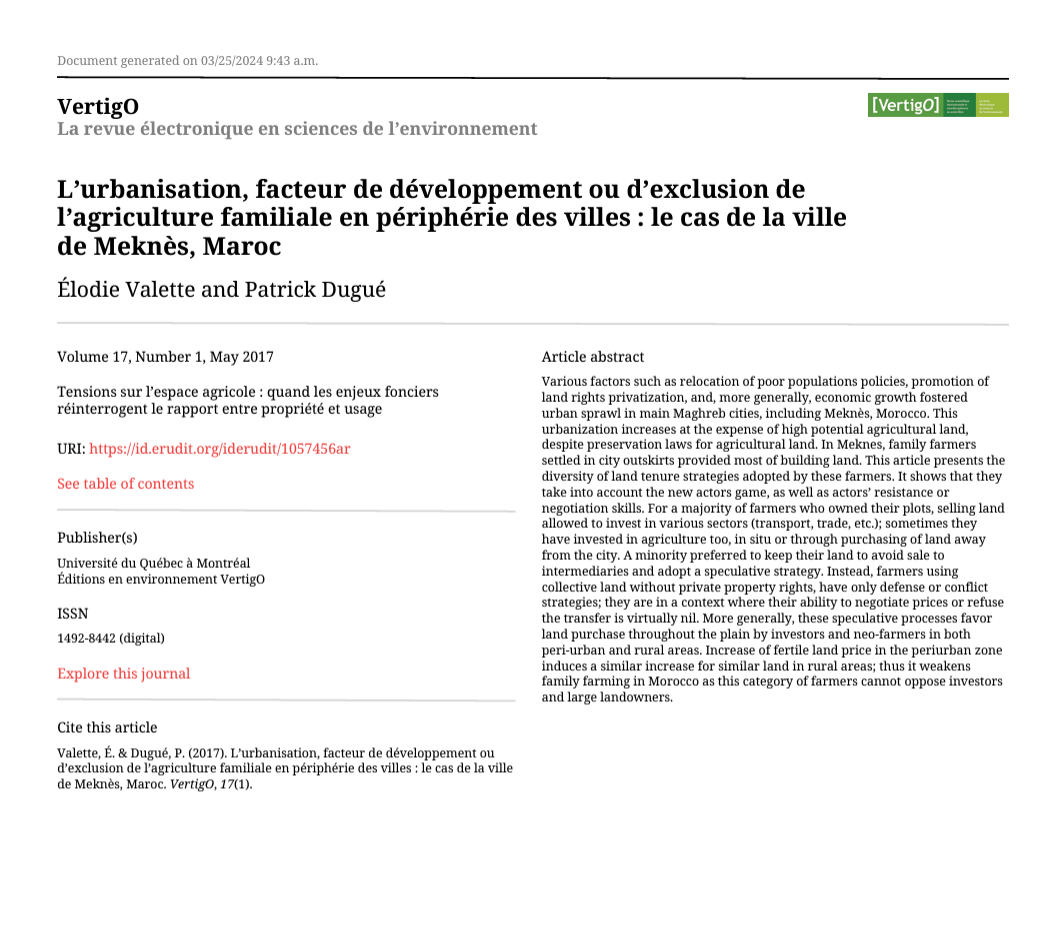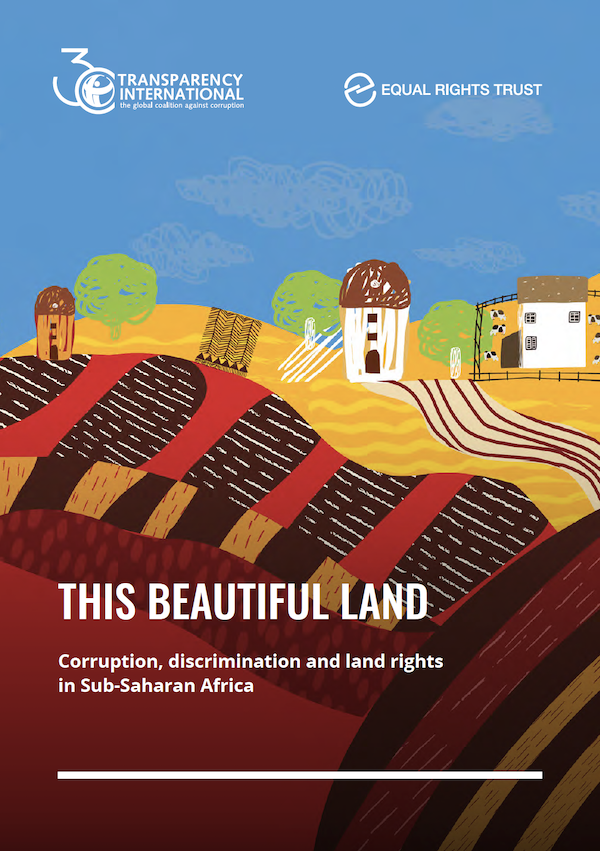Les systèmes de propriété foncière au Maghreb. Le cas du Maroc
Les systèmes de propriété foncière dans les trois pays du Maghreb nous apparaissent aujourd’hui comme marqués par leurs particularités. Cependant pour l’essentiel, leurs différences sont le résultat, tardif, des politiques foncières conduites par les trois Etats depuis l’indépendance. [... ]

